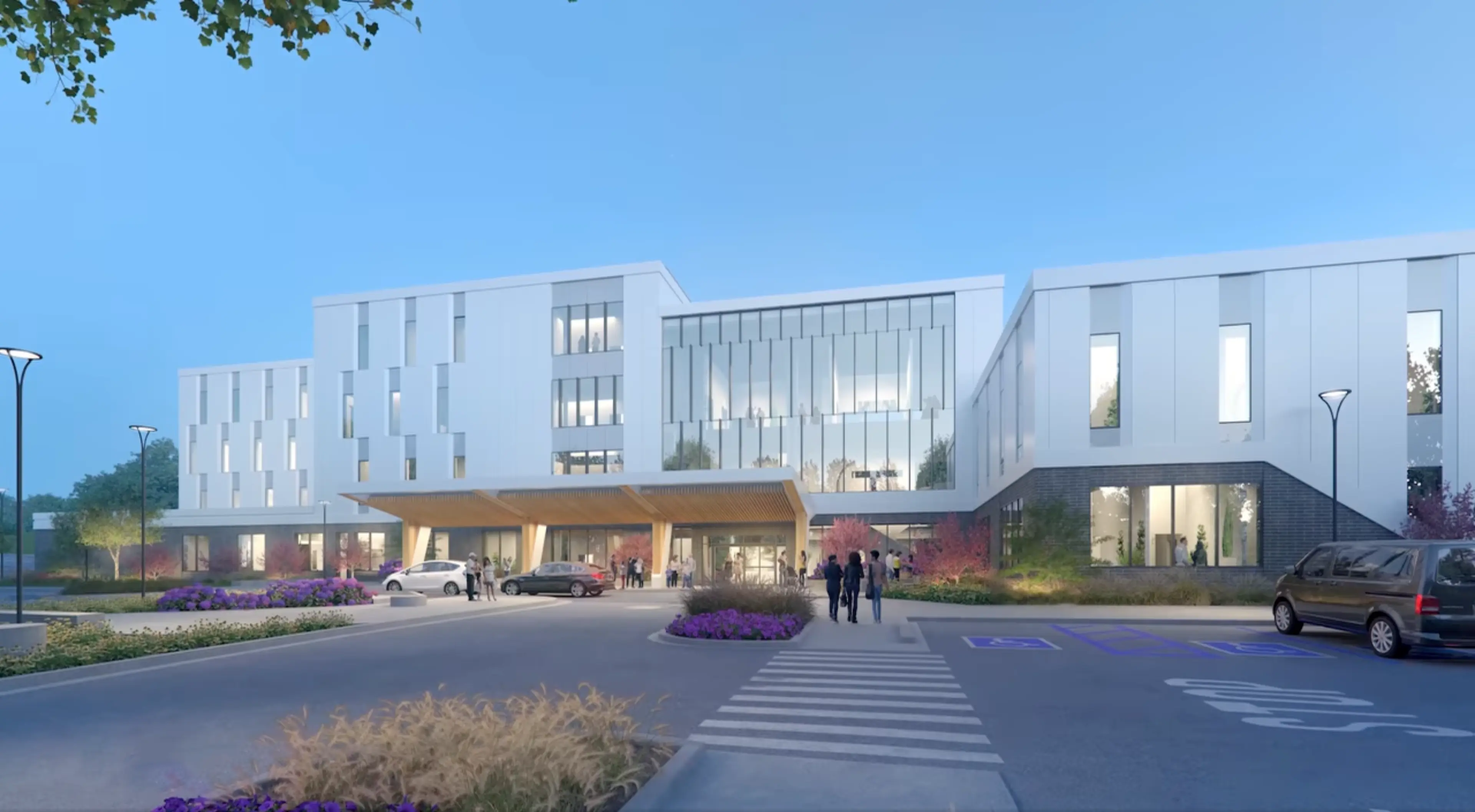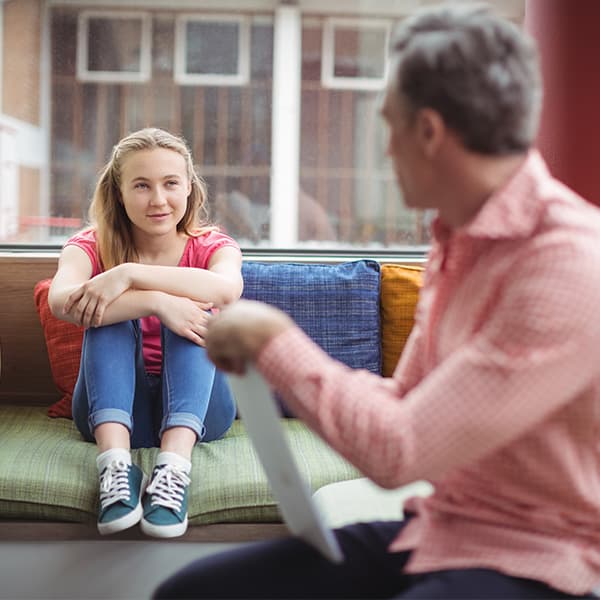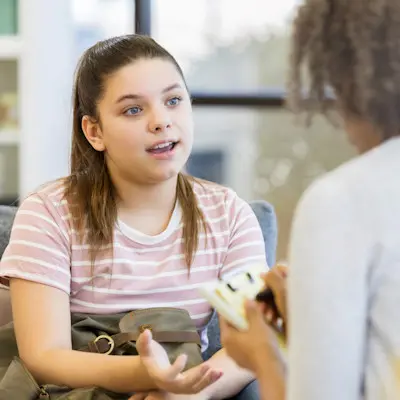Gracelyn’s Story: Finding Hope through Teen Depression
Learn how Gracelyn navigated teen depression with support from Children's Nebraska, finding hope, healing and strength along the way.
May 5, 2025
When it comes to mental health, the face of struggle often looks different than we expect. As Gracelyn, a vibrant 16-year-old cheerleader, shares, “When you think of mental health, you may picture a specific person, but then you see me and you’re like, ‘No way.’” Her story — and the support she found at Children’s Nebraska — shines a light on the importance of asking for help, the power of hope and the life-changing impact expert care can have on every member of a family.
When a Family Needs Hope
For Gracelyn, life looked dramatically different just two years ago. She remembers, “I was at the lowest point of my life. I was fighting with my friends, I was genuinely depressed and I didn’t want to be here anymore.” It was a time clouded by hardship and loneliness — not just for Gracelyn, but for her entire family. Mental health challenges don’t only touch those at their center — they ripple outward, affecting parents, siblings and every corner of family life.
“I think the overwhelming thing that I see, more commonly than what kids are going through, is what families are going through,” says Dr. Tony Pesavento of Children’s Behavioral Health team. “Mental illness, especially to the point where you need to be in the hospital, can be a real lonely, isolating feeling of, ‘Where did we go wrong as a family, where did we go wrong as parents?’”
Sara, Gracelyn’s mom, recalls, “It was really a dark spot for our whole family — not being able to wrap our heads around it, not understanding what was going on in her mind and what she was thinking.”
Choosing Expert Pediatric Behavioral Healthcare
Knowing they needed support, the Glaser family turned to the pediatric behavioral health team at Children’s Nebraska. The team specializes in therapy and mental health services for teens dealing with depression, anxiety, attention-deficit/hyperactivity disorder (ADHD) and trauma, providing expert care tailored to both teens and their families. Gracelyn received compassionate, personalized treatment that focused on her unique needs — and gave her family tools to navigate the journey alongside her.
Sara remembers a powerful moment during Gracelyn’s hospital stay. “I think the most impactful thing that happened during her hospital stay was when one of the nurses could tell that we were struggling and asked us to step outside. She was a younger nurse, and she said, ‘I just want to tell you — I am your daughter. I was right where she is not that many years ago. My parents went through the exact same thing you’re going through. I encourage you to just love her where she is and walk this journey with her.’”
This moment of kindness and compassion reassured Sara that they weren’t alone — and that they were in the right place to get Gracelyn the care she needed.
What Does Recovery Look Like for a Teen with Depression?
Gracelyn’s experience is a testament to the ups and downs of recovery, but also to the real possibility of hope. “I know that I’m always going to have struggles with my mental health. I think that’s something I’ve come to terms with. But right now, I feel like I’m in a good spot where I can be myself and be okay with who I am.”
Effective treatment for teens with depression often includes a mix of talk therapy, family counseling and sometimes medication. At Children’s, teams work closely with families to build individualized plans, guiding each teen toward rediscovering confidence and the joy of things they love.
Dr. Pesavento shares, “Part of our job as physicians is to instill that hope — that we can deal with this, we can manage this, we can help kids work through this. Are we ever going to be at a point where there are zero symptoms? Maybe not. But are we going to be able to get to a point where they’re functional again? Absolutely. Are we going to get to the point where they can achieve a lot of their dreams and goals? Absolutely.”
The Journey Forward
For Gracelyn, healing came in small but powerful steps. Joy returned in moments like caring for her new puppy, finding her community in cheerleading and making plans for her future.
Sara says, “I think we’ve learned it’s a journey, and this will be a journey we’ll have with her for the rest of our lives — and that’s okay. Our job is to love her through it and to know that we can’t fix it, but what we can do is make sure she has all the resources she needs to get herself better.”
Joe, Gracelyn’s dad, shares his perspective with families going through similar experiences, “When you see the magic of the transformation in Gracelyn over the last year, it blows me away. My encouragement to other families is to know it's coming. It’s going to be a journey, but know it’s coming.”
And Gracelyn offers her own words of hope to other teens and families, “My mental health doesn’t own me, and I’m glad I figured that out. When I was struggling, I always thought my mental health defined me as a person. But now that I’m here, I know it doesn’t. I am who I am. I think the best part about getting help is being able to watch myself find who I am.”
There Is Hope at Children’s
Behavioral health challenges can touch any family, but no one needs to walk this path alone. The Behavioral Health & Wellness Center at Children's offers a place of support and transformation for teens and their families. Their mission goes beyond treating symptoms — it’s about helping each young person rediscover the simple joys of daily life.
There is no shame in seeking help, and every reason to hope. Gracelyn’s story is one of resilience, connection and the promise of brighter days ahead.
Explore More

Behavioral Health & Wellness Center Planned on Children’s Campus

Find a Behavioral Health Provider

Mental Health Resources

